Illegal logging remains a serious problem around the world. Illegal harvesting of timber drives deforestation, harms communities, deprives local governments of tax revenue, and contributes to more climate-disrupting pollution. Illegally sourced wood products undercut workers and companies that abide by the law. Thanks to the Lacey Act, a landmark conservation law passed in 1900 and amended in 2008, the United States is helping lead the world in the fight against illegal logging. The Lacey Act requires importers of wood products to take steps to ensure that their products have been sourced legally, with violators facing fines or jail time. Scroll down to read more about the threats posed by illegal logging and the benefits of the Lacey Act.
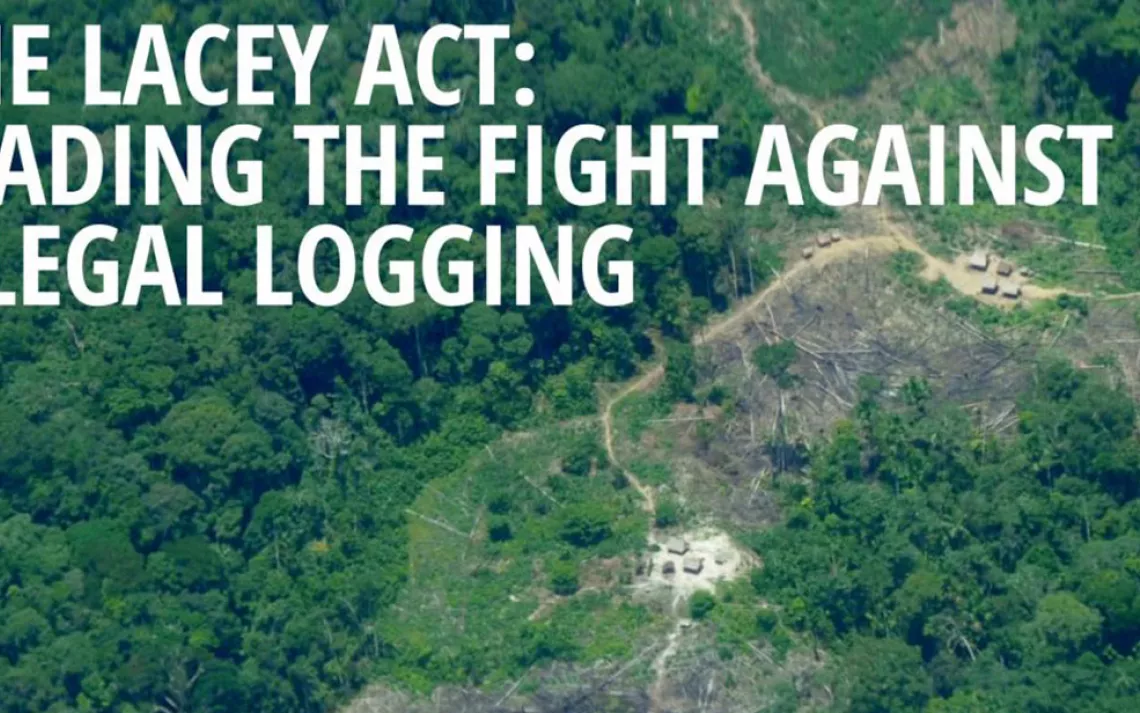
Wood products can be sourced illegally in many ways. Trees can be cut illegally by logging without a valid permit, logging within protected areas, removing more trees than allowed by a logging permit, logging beyond the boundaries of a permit, or logging protected species.6 In many cases, illegal logging is organized by criminal enterprises and involves bribing local officials, ignoring laws, and using violence to access trees that would otherwise be off-limits.
Around the world, illegally harvested timber reaches international markets by being laundered, using an array of tactics. Often times, documents are falsified and illegally harvested timber is matched with legal logging permits. In some instances illegally harvested wood makes it to market by bribing officials and avoiding taxes and fees.
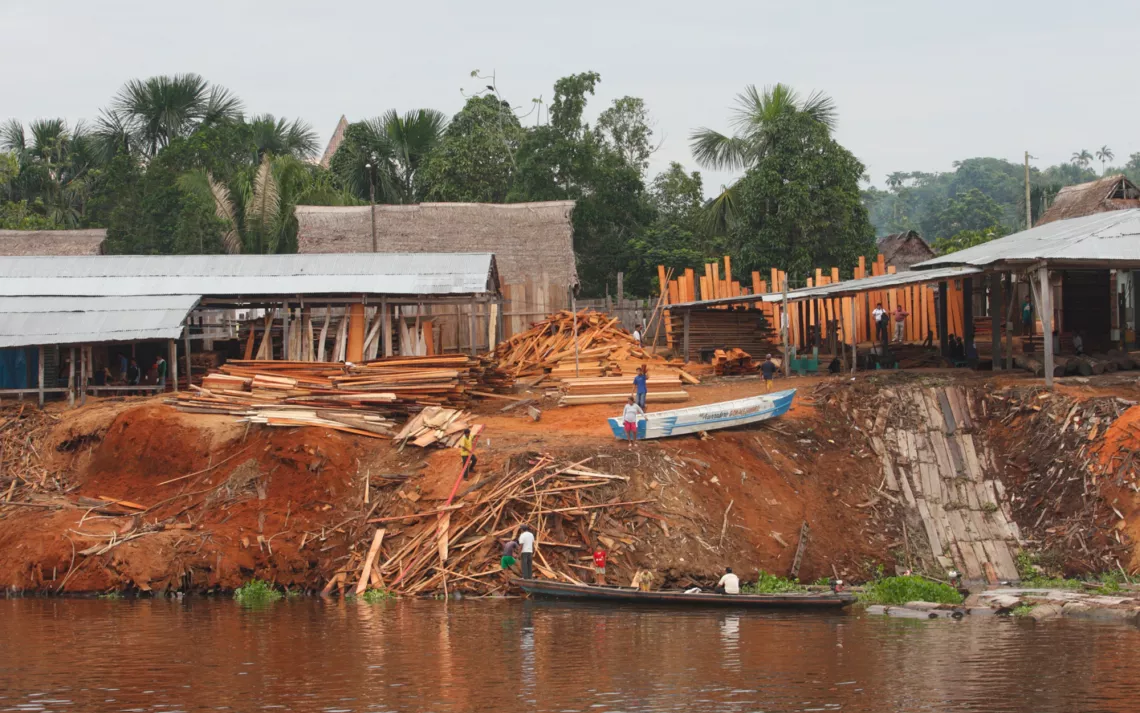
From the Amazon rainforest to the taiga of Russia, illegal logging happens around the globe. Although trends such as corruption and threats of violence spread worldwide, how illegal logging occurs can vary from country to country. Learn more about illegal logging in the four countries highlighted below.
More than half of Peru is covered by the Amazon rainforest. For decades, illegal loggers have traveled deep into the Amazon, cutting valuable hardwoods for sale on the international market. In an in-depth report, The Laundering Machine,7 the Environmental Investigation Agency detailed the well-oiled machine that takes trees from the Peruvian Amazon to markets in the United States.
Inside the country, it is widely known that illegal logging is rampant. A small number of companies and individuals use networks of contacts throughout the country to log protected areas, exploit forced labor, and pass illegal wood off as legal for export. In remote areas of forest, local bosses coordinate teams of loggers, often underpaying them or not paying them at all for the tough task of cutting and transporting massive trees. Logs are then transported to sawmills, where they are converted into planks for export. In many cases, official logging permits are then matched with illegally harvested timber, effectively laundering the wood before export.
Illegal logging in Peru threatens more than the environment, it harms people. EIA’s report chronicled unsafe working conditions, forced labor and threats of violence to workers that disobeyed orders. In other instances, female employees promised good pay to work as cooks were expected to perform sexual services in addition to cooking three meals a day.
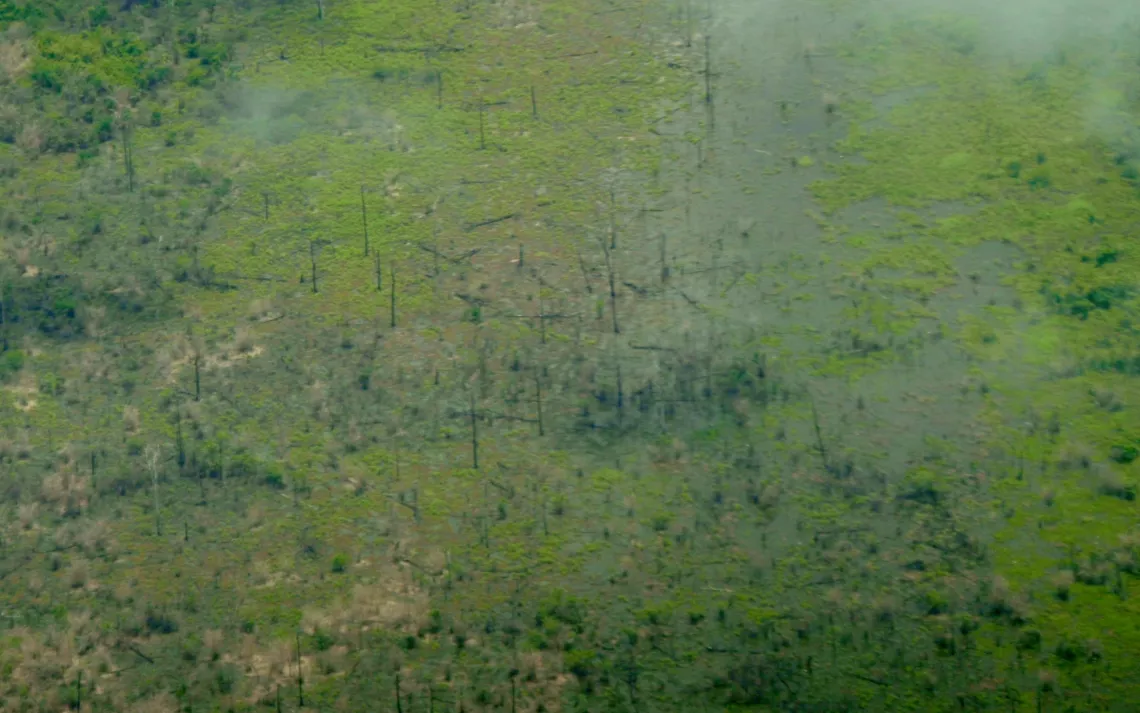
Located in West Africa, Liberia contains some of the largest remaining swaths of the Upper Guinean rainforest. Liberia’s forests support a wide range of biodiversity; however, they have also supported war. Revenues from illegal logging fueled the dictatorship of Charles Taylor, who ruled the country through a bloody civil war that ended in 2003. By some estimates, illegal logging brought in more than $100 million annually, much of which was funneled into private bank accounts used to fund the conflict.
In the aftermath of the civil war, illegal logging continued to expand. By 2012, Liberian president Ellen Johnson Sirleaf had granted logging permits covering more than half of all primary rainforests.8 The vast majority of these permits were granted illegally, allowing a few companies to snap up vast tracts of forest to log. Many of these logging concessions were used to expand palm oil plantations, threatening local communities that have long depended on forests.
Thankfully, in 2013, President Sirleaf placed a moratorium on logging under these permits and pledged to reform Liberia’s forestry sector. In 2014, Norway pledged $150 million to Liberia in an effort to strengthen forest governance and end deforestation in the country by 2020.9 While these reforms do provide hope for Liberia’s forests and communities, it is critical that they be fully implemented.

Stretching from Europe to the Pacific Ocean, Russia’s forests cover more than half of the country and account for roughly 20 percent of all forestland worldwide.10 These vast forests support communities and a wide range of flora and fauna. They also serve as one of the world’s largest carbon sinks, or storage areas.
Although Russian forestry accounts for less than 4 percent of the international wood products market, there is money to be made in illegal logging, particularly in the Russian Far East, where illegal timber is smuggled to China for export. The forests in the Russian Far East are home to the last 450 Siberian tigers in the wild, as well as stands of oak, ash, and elm. Unfortunately, rampant corruption and lax enforcement has led to widespread illegal logging. According to analysis by the World Wildlife Fund, in 2010 at least half of all oak imported from Russia to China was illegal.11
In 2013, the Environmental Investigation Agency released a report after years of undercover investigations, tracking illegally logged wood from Russia to China. 12EIA’s investigation found that Lumber Liquidators, the top hardwood flooring retailer in the United States, allegedly sourced oak flooring from timber illegally logged in the Russian Far East, some of the last remaining Siberian tiger habitat. The United States Department of Justice has since launched an investigation into Lumber Liquidators and possible violations of the Lacey Act.
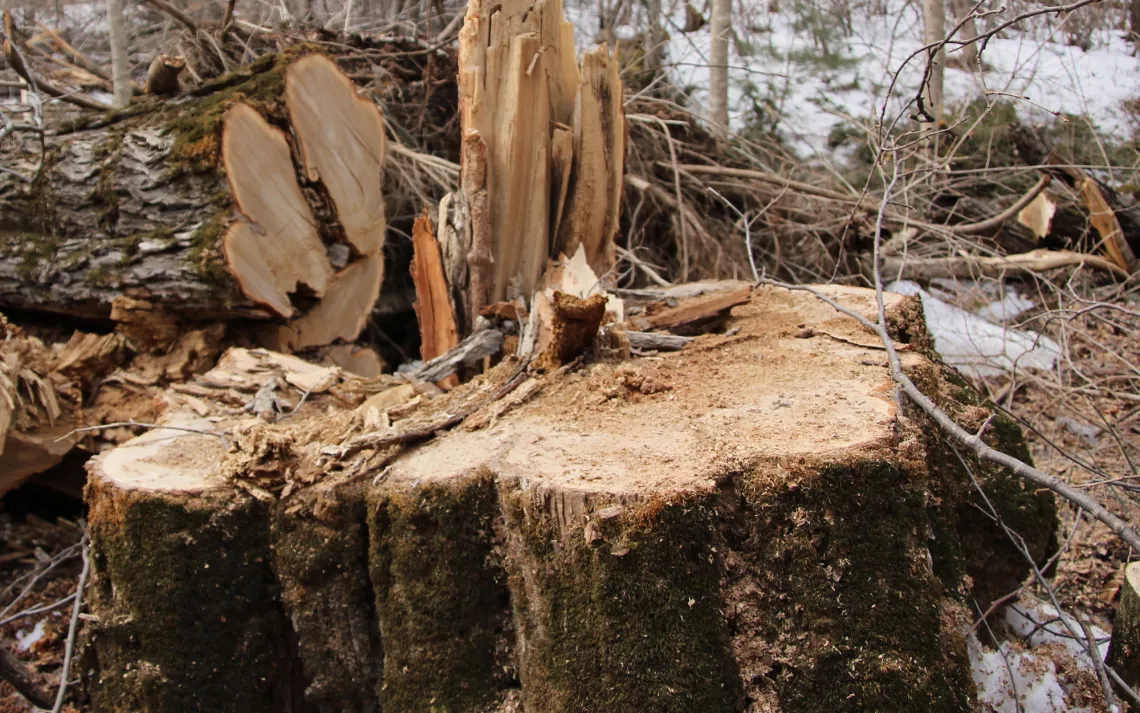
Made up of nearly 18,000 islands in the Pacific and Indian Oceans, Indonesia is home to the third-largest area of tropical rainforest in the world. Home to many rare species of plants and animals, including Sumatran tigers, orangutans, and the Javan rhinoceros, much of this ecologically rich rainforest is found on the islands of Borneo and Sumatra.
Over recent decades, demand for pulp, paper, and palm oil have mixed with corruption to create one of the world’s highest rates of deforestation. A recent study found that between 2000 and 2012, Indonesia lost 6.02 million hectares of forest -- an area nearly the size of West Virginia.13
In recent years, the expansion of palm oil plantations in Indonesia has been the leading driver of deforestation. From corruption in permitting new palm oil plantations to lack of enforcement of permit boundaries and logging practices, palm oil development has led to widespread illegal logging.14 The expansion of palm oil plantations must be reined in to stop illegal logging and protect Indonesian rainforests.
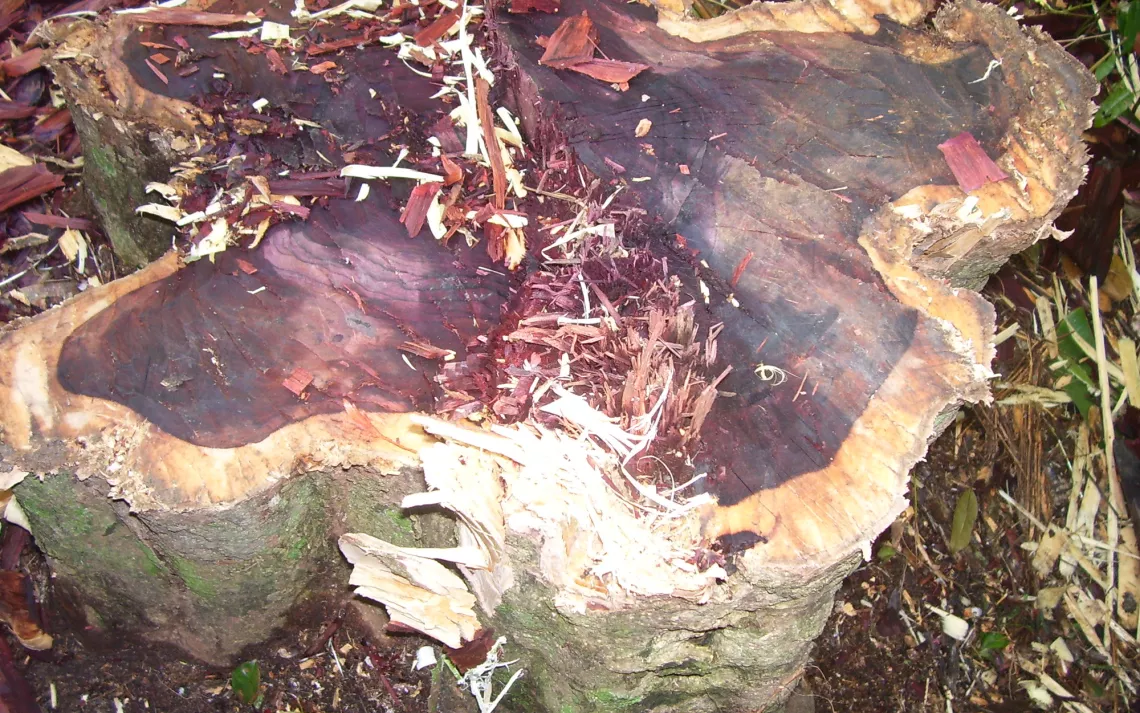
The Lacey Act is a landmark conservation law, signed by President McKinley in 1900, that prohibits the trade of plants and wildlife that have been illegally taken, transported, or possessed. The law was initially intended to prevent the poaching of game and birds taken in one state and sold in another. In 2008 the Lacey Act was amended to broaden protections for a wide range of plants, including trees and plants in countries outside the United States. Championed by Senator Wyden (D-OR), these amendments were supported by a broad, bipartisan coalition of interests, including much of the domestic wood products industry, labor unions, and environmental organizations.
From communities that depend on forests for their livelihoods to workers in the U.S. wood products industry, illegal logging has serious impacts. Further, illegal logging drives deforestation and threatens our environment and our climate. By reducing the demand for illegally sourced wood products, the Lacey Act helps protect communities, jobs, and our climate.
Threat
Illegal logging not only harms plants and animals but also threatens communities by destroying the forests on which they depend and protect, depriving local governments of revenues, and fueling organized crime. Throughout the world, illegal logging operations encroach on communities, often using the threat of violence, with workers facing dangerous working conditions and human rights abuses.
Throughout the past year, we have seen tragic reminders of the threats some communities face. In a remote region near Peru’s border with Brazil, a prominent activist, Edwin Chota, was shot and killed along with three community leaders. Illegal loggers who have long tried to extract tropical hardwoods in nearby forests are the suspected killers. Unfortunately, these slayings are not an isolated occurrence. According to a recent report by Global Witness, more than 900 people were killed from 2002 to 2013 while trying to protect the environment and land rights. While this violence has spread around the globe, Latin America has been particularly affected, with Brazil accounting for nearly 450 of these cases.
Benefit
By stemming the import of illegally sourced wood products into a major market, the Lacey Act reduces demand for illegally logged timber. Further, the Lacey Act provides companies with a strong incentive to examine their supply chains and engage with timber-producing countries to ensure the legality of their wood products. Improving forest governance can provide communities with more input into land management decisions, protect community property rights, drive more sustainable harvests, and create safer working conditions.

Threat
Around the world, our forests store vast amounts of carbon. In fact, forests store 650 billion metric tons of carbon dioxide, more than is found in the entire atmosphere.15 Deforestation, driven in many areas by illegal logging, is responsible for 17 percent of worldwide greenhouse gas emissions.16 Put another way, that’s more than one and a half times the emissions from all road, rail, air, and ship travel worldwide.17
Benefit
Illegal logging is down, but not out. Since peaking in the mid-2000s, illegal logging has decreased by 50-75% in key timber producing countries.18 Thanks to strong action by countries that consume timber, such as the enactment of the US Lacey Act and the European Union Timber Regulation, imports of illegal timber dropped 30% between 2004 and 2010.19
Reducing deforestation keeps climate-disrupting pollution out of the atmosphere and protects important ecosystems. According to a 2010 Chatham House report, efforts by producer and consumer countries protected 17 million hectares of forest - roughly the size of Florida - from degradation over the previous decade, keeping 1.2 billion tons of carbon pollution out of the atmosphere.20 In the United States, preliminary analysis by the Union of Concerned Scientists found that full enforcement of the Lacey Act could keep 27 million metric tons of carbon pollution out of the atmosphere each year.
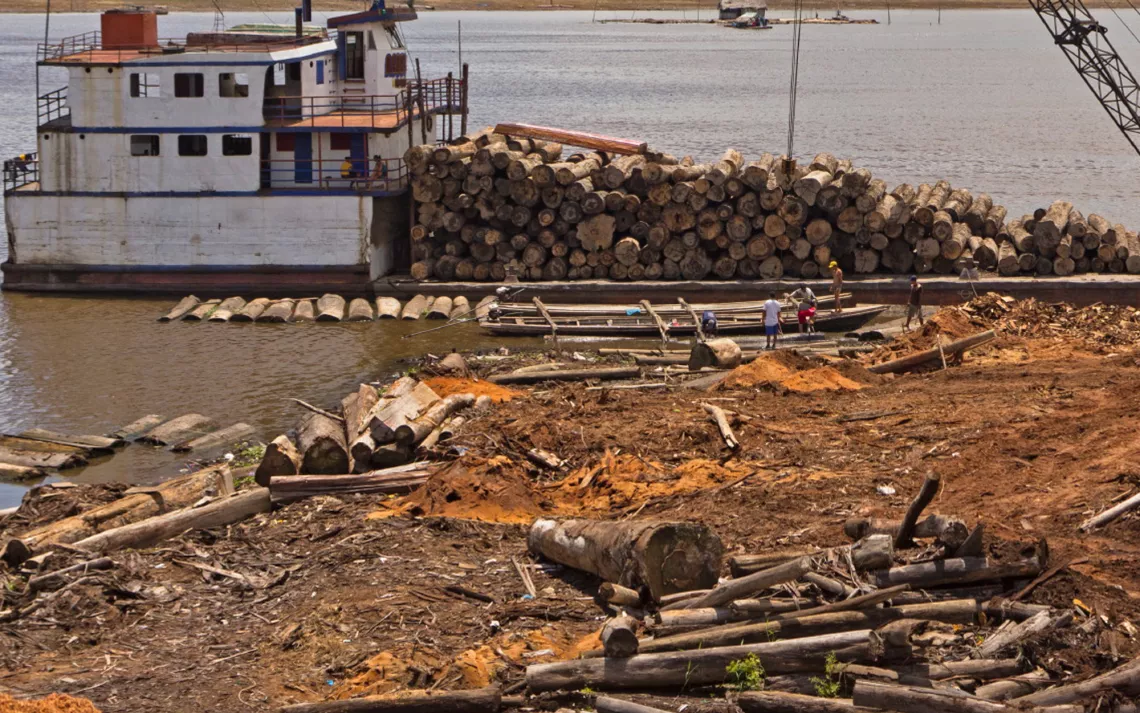
Threat
There is a lot of money to be made in illegal logging. The United Nations Environment Programme estimates that illegal logging is worth somewhere between $30-100 billion annually. By circumventing legal processes, illegal logging deprives communities of tax revenue. According to the World Bank, countries lose some $10 million in revenues from illegally harvested timber and an additional $5 million on evaded taxes on legal logging.21
In the United States, imports of cheaper, illegally sourced wood products undercut American workers that play by the rules by depressing prices of wood products and decreasing the value of U.S. exports. Including the effects of cheaper products sold domestically and less valuable exports, it is estimated that illegal logging costs American companies $1 billion annually.22
Benefit
The Lacey Act not only reduces deforestation and carbon pollution but also protects jobs. From logging to product assembly and manufacturing, the United States wood products industry is a major employer. According to the U.S. Bureau of Labor Statistics, roughly 36,530 people are employed by the forestry and logging sector.23 Additionally, more than 370,000 people work in the wood products manufacturing sector.24
If no illegally sourced timber were traded on the world market, the value of U.S. wood product exports would increase $460 million annually.25 According to analysis by the Union of Concerned Scientists, ending U.S. imports of illegal timber and replacing half of them with domestic production would create roughly 200,000 jobs.
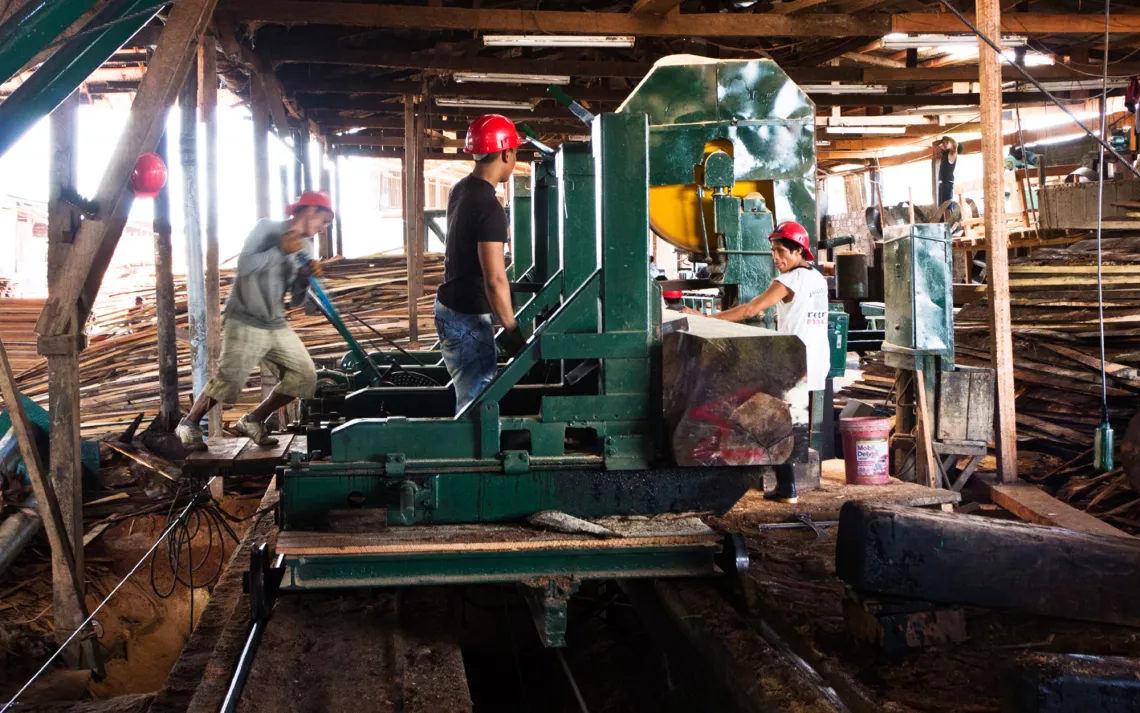
Under the Lacey Act, companies and individuals making major shipments of wood products into the United States are required to document the species and country of harvest of the wood products they import. Companies importing wood products must take due care to ensure their products have been sourced legally. Violators of the Lacey Act face a comprehensive system of penalties and fines, along with authorized seizures of illegal wood products.
The primary agencies involved in enforcing the Lacey Act are the U.S. Department of Agriculture’s Animal and Plant Health Inspection Service (APHIS) and the Fish and Wildlife Service (FWS). APHIS is responsible for processing import declarations, but shares responsibility for investigating violations with the FWS. Other agencies that help with implementation include the Department of Justice, the Department of Homeland Security and its Customs and Border Protection staff, the Department of State, and the U.S. Agency for International Development (USAID).
Since being amended in 2008, the Lacey Act has shown a strong record of success. Although it is difficult to track the quantity of illegal wood products entering the United States, eliminating imports of cheaper, illegal products would have the expected impact of decreasing the quantity of imported wood products and increasing the price of those products that are imported. In November 2014, research by the United States Forest Service confirmed this hypothesis, finding that since the implementation of the law, quantities of imported hardwoods from countries with extensive illegal logging had decreased, while prices of imported wood products had increased.26
Although deforestation has declined over the last decade, illegal logging remains a significant threat to communities, our economy, and the climate. Since being amended in 2008, the Lacey Act has shown a strong track record of success. It is critical that the United States continue to play a lead role in combating illegal logging by fully enforcing the Lacey Act.
- 1 Food and Agriculture Organization of the United Nations. Global Forest Resource Assessment 2010. http://www.fao.org/docrep/013/i1757e/i1757e.pdf
- 2 Food and Agriculture Organization of the United Nations. Deforestation and net forest area change. Accessed January 23, 2014, http://www.fao.org/forestry/30515/en/
- 3 United Nations Environment Programme. Green Economy: Forests. Accessed January 23, 2014 http://www.unep.org/greeneconomy/Portals/88/GETReport/pdf/chapitre_4_Forest.pdf
- 4 Nellemann, C., INTERPOL Environmental Crime Programme (eds). Green Carbon, Black Trade: Illegal Logging, Tax Fraud and Laundering in the World’s Tropical Forests. 2012 United Nations Environment Programme.http://www.unep.org/pdf/RRAlogging_english_scr.pdf
- 5 Ibid.
- 6 Elias, Patricia. Logging and the Law. How the U.S. Lacey Act Helps Reduce Illegal Logging in the Tropics. April 2012. Union of Concerned Scientists. http://www.ucsusa.org/sites/default/files/legacy/assets/documents/global_warming/illegal-logging-and-lacey-act.pdf
- 7 http://eia-global.org/images/uploads/The_Laundering_Machine_ENG.pdf
- 8 http://www.telegraph.co.uk/news/worldnews/africaandindianocean/liberia/10104422/Liberia-and-the-vanishing-rainforest.html
- 9 http://www.bbc.com/news/science-environment-29321143
- 10 http://www.fao.org/docrep/016/i3020e/i3020e00.pdf
- 11 http://www.worldwildlife.org/publications/illegal-logging-in-the-russian-far-east-global-demand-and-taiga-destruction
- 12 http://eia-global.org/images/uploads/EIA_Liquidating_the_Forests.pdf
- 13 http://www.theguardian.com/environment/2014/jun/29/rate-of-deforestation-in-indonesia-overtakes-brazil-says-study
- 14 http://eia-international.org/wp-content/uploads/Permitting-Crime.pdf
- 15 Food and Agriculture Organization of the United Nations. Global Forest Resource Assessment 2010. http://www.fao.org/docrep/013/i1757e/i1757e.pdf
- 16 Nellemann, C., INTERPOL Environmental Crime Programme (eds). Green Carbon, Black Trade: Illegal Logging, Tax Fraud and Laundering in the World’s Tropical Forests. 2012 United Nations Environment Programme. http://www.unep.org/pdf/RRAlogging_english_scr.pdf
- 17 Ibid.
- 18 Lawson, Sam. Illegal Logging and Related Trade: Indicators of the Global Response. July 2010. Chatham House. http://www.chathamhouse.org/sites/files/chathamhouse/public/Research/Energy,%20Environment%20and%20Development/0710bp_illegallogging.pdf
- 19 Ibid.
- 20 Ibid.
- 21 The World Bank. Strengthening Forest Law Enforcement and Governance: Addressing a Systemic Constraint to Sustainable Development. August 2006. http://www-wds.worldbank.org/external/default/WDSContentServer/WDSP/IB/2006/09/05/000160016_20060905125450/Rendered/PDF/366380REVISED010Forest0Law01PUBLIC1.pdf
- 22 Sheikh, Pervaze A. The Lacey Act: Compliance Issues Related to Importing Plants and Plant Products. July 24, 2012. Congressional Research Service. http://fas.org/sgp/crs/misc/R42119.pdf
- 23 Bureau of Labor Statistics. Industries at a Glance: Forestry and Logging. United States Department of Labor. Accessed January 23, 2014. http://www.bls.gov/iag/tgs/iag113.htm
- 24 Bureau of Labor Statistics. Industries at a Glance: Wood Product Manufacturing. United States Department of Labor. Accessed January 23, 2014. http://www.bls.gov/iag/tgs/iag321.htm
- 25 Sheikh, Pervaze A. The Lacey Act: Compliance Issues Related to Importing Plants and Plant Products. July 24, 2012. Congressional Research Service. http://fas.org/sgp/crs/misc/R42119.pdf
- 26 USDA Forest Service Southern Research Station. 2008 Lacey Act Amendment Successful in Reducing U.S. Imports of Illegally Logged Wood. November 19, 2014. http://www.srs.fs.usda.gov/news/578